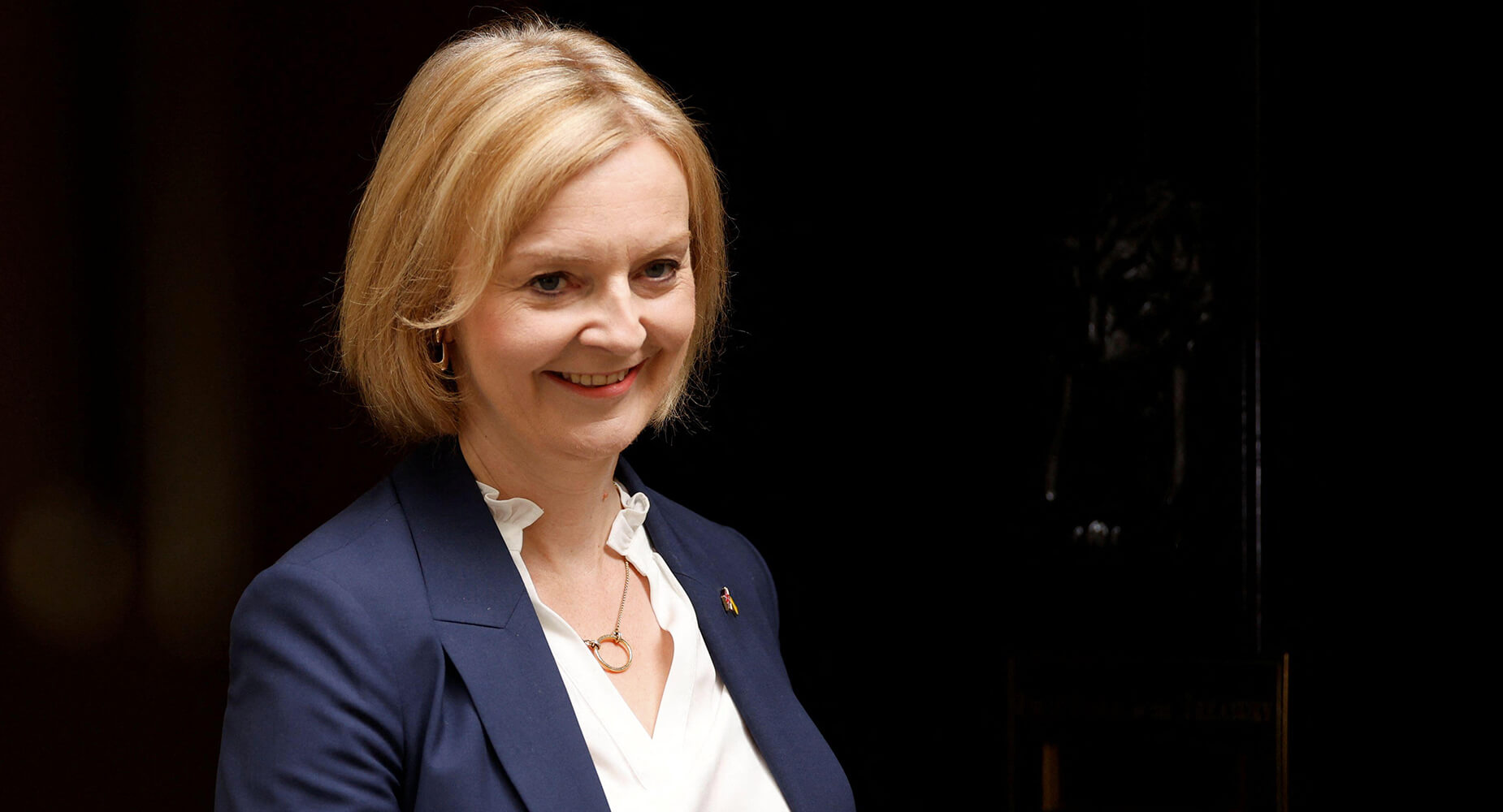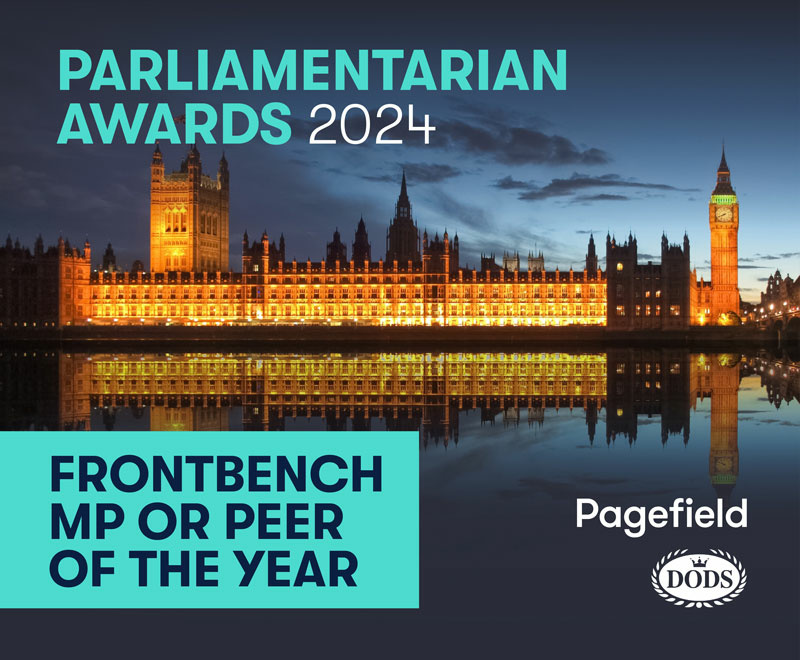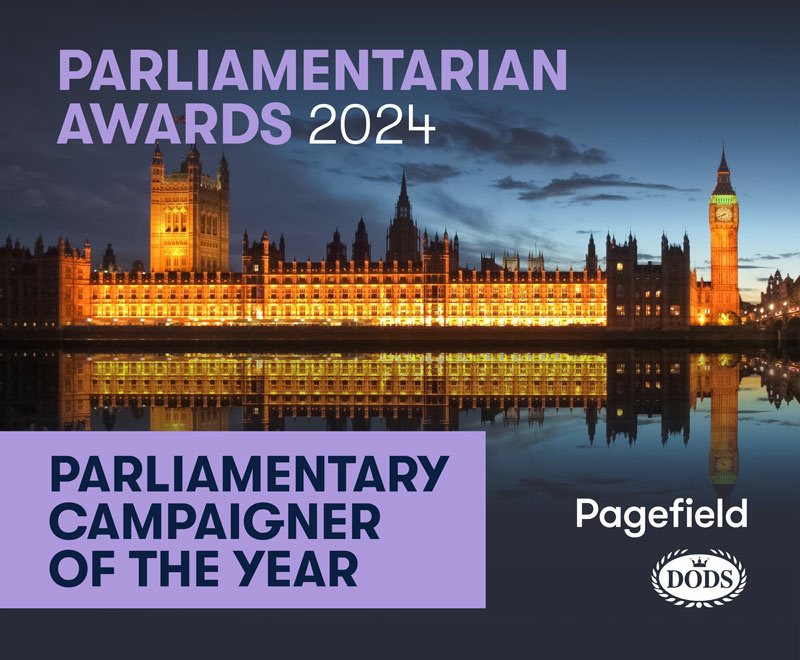On 5 September 2022, Liz Truss became fourth Conservative leader since 2016 and third female Prime Minister ever.
After a two month contest, the Conservative leadership concluded with 141,000 members (out of 172,000) voting. This meant a reasonably high turnout of 82.6%, with Liz Truss securing 81,326 (57%) votes to Rishi Sunak’s 60,399 (43%).
Truss’ victory was widely expected in Westminster and by the teams of both candidates, with Truss having led the polls throughout the campaign against Sunak. However, the margin was significantly slimmer than many commentators had predicted – in fact, Liz Truss won by a smaller majority than Boris Johnson did when he became Leader.
Following the result, the Tory Party has been clear that they want to present a unified front, with blue-on-blue attacks being quickly curtailed. On the results being shared, Truss called the outgoing Prime Minister a “great friend” and Boris Johnson threw his support behind Truss saying she “has the right plan to tackle the cost- of- living crisis, unite our party and continue the great work of uniting and levelling up our country. Now is the time for all Conservatives to get behind her 100 per cent.” This supportive tone is being used by several frontline politicians, including Sunak.
The immediate priority for Truss is going to be taking control of the economic situation. Whilst the passing of the Queen meant that politics has been on hold for the last two weeks, the brief period before Parliament goes back into recess will see an energy statement, and a mini-Budget this week.
This sense of urgency will be how we expect Truss to kick-off her leadership and was emphasised in her acceptance speech to the Conservative Party where she pledged to “deliver, deliver, deliver.” This should be read as committing to the delivery of the Conservative promises in 2019, but we should also expect to see Truss making a break with previous Conservative governments.
In her opening speech to the nation, Truss pledged to “get Britain working again” and to become an “aspiration nation”. This was reinforced with pledges to cut taxes, deregulate, grow the economy, deliver on energy crisis, and continue supporting large infrastructure objectives, such as with the NHS, roads and broadband.
There are two central strands to Truss’ leadership. Firstly, she and her team will want to win the next election and be the first Party to do so for five consecutive elections. This will mean walking a tricky line of not demonising how the Party has led the country for the past 12 years, while at the same time delivering on her mandate to bring about a more radical policy programme, especially when it comes to taxes.
Our view is that she is unlikely to seek an early general election – a point she made several times during her acceptance speech – saying she’d use the full two years afforded to her before 2024 (the time by which the next general election must happen).
Truss’s first weeks (and months) at the helm of No10 will undoubtedly be overwhelmingly shaped by the cost-of-living crisis.
Truss managed to make the initial announcement of supporting consumers and businesses with their energy bills, but this week will be the first time the government can go into detail about what this actually means in practice.
Other policies which Truss will be quick to deliver will include measures that grow the economy, such as cutting taxes. Truss is widely expected to also back new deregulation, especially in the financial sector, and to foster new industrial growth that might unlock inward investment. While this will lend itself to opportunities for businesses, it’s worth bearing in mind that Truss will need to balance her ambitions with the will of backbenchers – as though she won the leadership election, she didn’t win amongst her own MPs during the earlier stages of the contest.
A final consideration for Truss’ premiership is the outgoing Prime Minister Boris Johnson. He remains one of the most influential politicians of his generation and we can expect every part of Truss’ reign to be compared to his character and beliefs. This is another reason her team will want to be radical in their thinking. Her first set of public speeches and parliamentary appearances have so far been received well by MPs and commentators. However, many are reminded of a similar experiences with Theresa May – who started her premiership strongly before being knocked off-balance by increasing challenges in Westminster and further afield. Time will tell if Truss can handle the pressure.
The new Cabinet
Who Truss has picked for her Cabinet will be key to her success, and even more important than Boris’. In a bold move, Truss removed all those who were in support of Sunak, and ‘big beasts’ such as Grant Shapps, Priti Patel and Dominic Raab have all returned to the backbenches.
We’ve set out below our thoughts on the political weight, and likelihood to disrupt policy for those now leading the country.
Liz Truss: Prime Minister and First Lord of the Treasury
Boris entered No10 with a strong media persona, which Truss – or indeed anyone in the race – cannot rival. She’ll therefore likely spend her first few weeks being compared to Boris both in presentation and forecasts of how successful she will be winning the next election.
She has painted herself as heir to Thatcher and promised she will have a programme of policy radicalisation. How much of her vision to empower the individual depends largely on how strong and united her Cabinet are – and also how loyal those on (or indeed sent) to the backbenches will be.
| Political weight | Likelihood to disrupt policy |
| 10 / 10 | 8 / 10 |
Kwasi Kwarteng: Chancellor of the Exchequer
In the summer of 2010, Kwasi gave his maiden speech in Parliament. Normally, this gives platitudes about predecessors and idle trivia about the local constituency. Kwasi, however, used it as an opportunity to attack Labour MPs for having “not once accepted any blame for” the financial crisis of 2007-09.
Like Rishi, he had a career in the City before joining politics, but unlike his predecessor he did not have a meteoric rise to the top of Cabinet – having sat in the backbenches for almost a decade when he first entered Parliament. Like Truss, he is a Thatcherite and a small-state Conservative who advocates the greatest possible economic liberty and the least possible government regulation of social life. It is likely though in the short term he will have to go against his beliefs to fund energy support measures, and we will see what other lengths he will take to win the support of the country ahead of the next election.
| Political weight | Likelihood to disrupt policy |
| 8 / 10 | 8 / 10 |
Therese Coffey: Health Secretary and Deputy Prime Minister
A long-standing friend of Truss, Coffey has marched to the beat of her own drum during her various Cabinet positions. And her time as Health Secretary will be no different. She will likely veer away from previous policy that has focused on public health, especially health improvement (cut obesity, smoking, drinking) to focus her efforts on the improving practicalities of the NHS (ambulances, doctors, dentist, wait times) – something she has long campaigned for.
This will not stop a likely reputational issue that will thread throughout her appointment as Health Secretary – her anti-abortion stance. It waits to be seen whether she will take the baton on to push forward the 10-year women’s health strategy, something previous Secretary of States put behind their full weight behind.
| Political weight | Likelihood to disrupt policy |
| 8 / 10 | 9 / 10 |
James Cleverly: Foreign Secretary
Truss and Cleverly both served on the London Assembly together between 2008-2010, the point at which Truss moved into Parliament. Cleverly entered national politics five years later and they have stayed close – he was an early backer of Truss’ campaign to be leader. It’s likely that, given Truss’ own views and commitments, Cleverly will play a key role in her administration, especially when it comes to tackling Russian aggression but also curbing the influence of China.
Cleverley’s quick rise to the top of government reinforces a widely held view that he is a sophisticated operator, able to handle his brief. As he was a junior minister at the Foreign Office previously, Cleverly likely knows the portfolio he’s taken on better than other new Cabinet minister and this may enable him to get ahead of his in-tray.
| Political weight | Likelihood to disrupt policy |
| 5 / 10 | 4 / 10 |
Anne-Marie Trevelyan: Transport Secretary
Trevelyan’s ministerial career has been rather short, having only assumed a junior ministerial role in 2019. Since that time Trevelyan has stayed, by and large, under the radar and has never seemingly sought to shake the trees. She is seemingly quite supportive of the environmental agenda too – perhaps unlike some of her new cabinet colleagues – and was heavily involved in COP26 and Clean Growth at BEIS. As Trade Secretary she was involved in getting free-trade deals with Australia and New Zealand over the line, as well as a digital agreement with Singapore – indicating she is someone who gets on with the job.
At the Department for Transport, it’s widely expected Trevelyan will continue with the decarbonisation agenda that Grant Shapps has left behind. She may also be empowered by Truss to embark on new infrastructure policies, alongside other department, following Truss’ ambition to build new roads.
| Political weight | Likelihood to disrupt policy |
| 6 / 10 | 3 / 10 |
Simon Clarke: Local Government, Housing and Levelling Up Secretary
Simon Clarke joins the Department from HM Treasury where he served under Rishi Sunak as Chief Secretary to the Treasury and notably did not back his former boss in the leadership election.
A key department with significant responsibilities, including the election winning task to level up – there is hope that Clarke could be the changemaker the Department needs. He has publicly supported regeneration projects, particularly in the North – in May, he tweeted that it would be a “disaster for the Conservatives [if] we do not build the homes we need, where we need them.” He has also been an outspoken advocate of tackling climate change having previously organised a letter signed by more than 130 cross-party MPs – in support of delivering net zero carbon emissions by 2050 – which resulted in the Government amending the 2008 Climate Change Act to reflect the target.
| Political weight | Likelihood to disrupt policy |
| 7 / 10 | 8 / 10 |
Jacob Rees-Mogg: Business Secretary
Rees-Mogg is seen as a marmite figure across the country. He was seen as a Truss loyalist and came out to support her very early. In the past, he’s been praised as a politician of conviction, whose anachronistic upper-class mannerisms and consciously traditionalist attitudes are often seen as entertaining. Critics view him as a reactionary figure, with his socioeconomic status distancing him from the reality of many constituents across the UK.
In his role as Business Secretary, Rees-Mogg is widely expected to be empowered by Truss to deregulate and foster a more open free market for businesses looking to grow. This isn’t necessarily new territory for Rees-Mogg who until recently was the Brexit Opportunities Minister. At BEIS, he is also expected to take a particular interest in workers and productivity. During the campaign, when Truss’ comments about British people needing more graft were revealed, Rees-Mogg backed them.
| Political weight | Likelihood to disrupt policy |
| 6 / 10 | 10 / 10 |
Kit Malthouse: Education Secretary
For 14 years Malthouse’s political career has been closely aligned to Boris Johnson’s. Before entering Parliament in 2015, Malthouse worked with Johnson while he was London Mayor, including as his deputy from 2012. This loyalty has remained during the past few years and he has been a prominent member of the Johnson administration, so his appointment to such a senior Cabinet role reinforces Truss’ demonstration of being the Johnson continuity candidate.
Despite holding senior roles previously, Malthouse is largely an unknown outside Westminster. Though he may surprise now he has charge of a department, it is likely he’ll continue to a steady pair of hands for Truss. Certainly, in the past there have only been a few instances where Malthouse has deviated from the government or support for Johnson.
| Political weight | Likelihood to disrupt policy |
| 5 / 10 | 4 / 10 |
Kemi Badenoch: Trade Secretary
Having been the surprise star of the Conservative Party leadership election after being consistently rated by pollsters, Badenoch’s influence has been recognised by Truss by appointing her as Trade Secretary, a position previously held by the Prime Minister herself.
Something commentators are missing in speculation about why Badenoch wasn’t made Education Secretary is that Badenoch served under Truss as a junior minister on the Equalities Brief. One Pagefielder who used to work in the Hub comments that Badenoch and Truss had a good working relationship, agreeing on the vision and policies. She was trusted to stand in PMQs in Truss’ place and internally was seen as her deputy. So, we wouldn’t be too quick to say she’s been put into the political sidelines.
A recurring criticism Badenoch was faced with during her leadership campaign was around her lack of experience so the Trade brief will be a key opportunity for her to prove to the doubters that she has the competency to run a big department. One way to do this – which will be the top of her agenda – is to secure the historic trade deal with India, long regarded as one of the biggest prizes following Brexit – as well as revive trade talks with the US.
| Political weight | Likelihood to disrupt policy |
| 7 /10 | 9 / 10 |
Michelle Donelan: Digital, Culture, Media and Sport Secretary
Our contacts described Donelan as diligent, bright, and ambitious. She will make things happen – but tows the party line and won’t ruffle her new boss’ feathers.
If we can include a 36-hour stint as Education Secretary, this is Michelle Donelan’s second Cabinet position having previously been a junior minister in the same department for 2 years. Despite this relatively junior experience she’ll be faced with a heavy in-tray with the Online Safety Bill and reviewing the Data Protection Bill, as well as 4 separate policy plans announced at the Queen’s Speech including the futures of Channel 4 and BBC.
Cultural figures hoping for a more professional tone and less culture war rhetoric than her predecessor Nadine Dorries may be disappointed. Donelan has previously criticised “cancel culture” and “woke bullies” and while her views in relation to other parts of the culture brief are relatively unknown, she has previously commented on the BBC’s licence fee as an “unfair tax” that should be “scrapped” which will no doubt, be sending alarm bells around broadcasting house.
| Political weight | Likelihood to disrupt policy |
| 2 / 10 | 2 / 10 |
Ranil Jayawardena: Environment Secretary
The youngest member of Truss’ cabinet – Jayawardena worked under Truss in the Department for Trade and was one of her early leadership backers so has been awarded with the position of Environment Secretary. His appointment comes at a crucial time as the department is expected to deliver new post-Brexit agricultural subsidy schemes and initiatives to meet environmental targets.
Given these commitments, eyebrows have already been raised as his voting record shows that he has consistently voted against measures to prevent climate change. Additionally, for farmers who are hoping he might deliver financial incentives for low carbon emission electricity generation methods, there may be disappointment too as he voted against this in 2018.
| Political weight | Likelihood to disrupt policy |
| 5 / 10 | 7 / 10 |
Ben Wallace: Defence Secretary
In the early stages of the Conservative leadership contest, many MPs called on Wallace to stand. He’s widely viewed as a competent operator who, given his leadership against Russian aggression, has risen in popularity amongst the public and Conservative Party members. Despite this, Wallace backed Truss for the leadership saying she was “authentic” and “stands her ground.” Both Truss and Wallace seem aligned against the threats Western economies face from Russia and China.
When it looked like much of the Cabinet was turning their back on Johnson, Wallace was amongst the members who stayed loyal (similar to Truss). His revitalised brief as Defence Secretary is no doubt a reward for his loyalty and support for Truss. Wallace is not expected to establish new positions in his role, though it’s expected he’ll remain in the public eye as the war in Ukraine continues and we may see more hawkish statements from him related to China – thought, it’s not expected these will deviate from Truss’s views.
| Political weight | Likelihood to disrupt policy |
| 9 / 10 | 2 / 10 |




